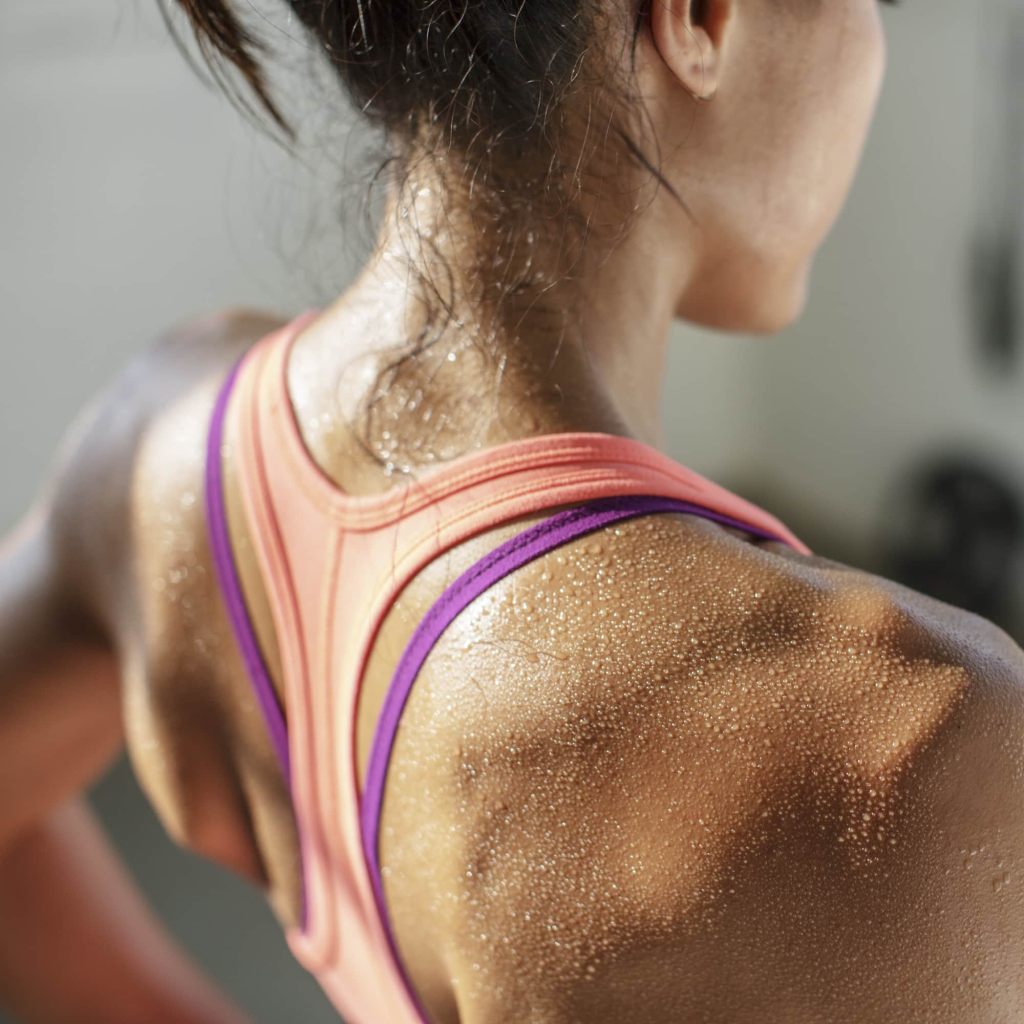You’ve probably seen numerous workouts promising to make you sweat like never before, implying that the sweatier you are, the harder you’ve worked and the closer you are to achieving your fitness goals. But here’s the thing, how much you sweat doesn’t determine if you’ve worked harder, if you’re getting stronger, or anything like that. It’s just sweat – kind of.
Is Sweat an Indicator of a Good Workout?
If you’re wondering if there’s a correlation between how much sweat you’ve produced during a given workout and if it means your training better, Lindsay Baker, PhD, senior principal scientist at the Gatorade Sports Science Institute, told POPSUGAR, “No, the two are not necessarily correlated although it can be.” While your sweat more than likely isn’t an indicator of having an optimal workout, “The intensity that you’re working out is definitely an important factor that determines how much you sweat, but it’s not the only factor,” she explained.
There are many variables that impact how much you sweat, for example, the environment. You’ll more than likely sweat less doing an intense HIIT workout indoors with air conditioning versus doing the HIIT workout outdoors in the heat. “There are other factors like how fit you are, how acclimated to the heat you might be, body size, for example, so it’s hard to compare,” Dr. Baker said. It’s especially hard to compare between different people because of all these other factors that impact the amount that you sweat, she continued.
Related: 10 Moisture-Wicking Face Masks to Help Keep You Dry During Your Next Workout
Another thing you have to consider when it comes to sweat is that you could be sweating a lot without knowing how much sweat your body is producing. Sweat doesn’t always show up as droplets on your skin, it can also show up on your clothes (hello, butt sweat stains!), or it may not show up at all because it’s evaporating into the air when you’re in drier environments like Arizona. “For all those reasons, it’s not necessarily a perfect indicator of the quality of your workout.”
If you’re simply comparing yourself to yourself and all the other variables are the same, such as training in the same environmental conditions, a lighter workout such as yoga will result in less sweat than an intense cycling workout because your muscles are working harder.
What Causes People to Sweat During Exercise?
So what exactly causes you to sweat during exercise? According to Dr. Baker, when you work out, your muscles are working and the harder they work the more heat they generate, called metabolic heat production. Your body wants to stay at a safe, core temperature, but the more you move, the warmer your body becomes.
In order for your body to attempt to stay at a safe, core temperate, “what your body does is [it] starts sweating so that you can evaporate that sweat and lose heat in order to maintain body heat balance and keep your core temperature in a safe zone,” Dr. Baker explained. Essentially, the more heat your body generates when you exercise, the more you need to sweat in order to lose body heat and maintain a safe heat balance, she said.
Is It Normal to Not Sweat a Lot?
There are heavy sweaters and then there are the people who rarely break a sweat no matter how intense the workout or how hot it is. According to Dr. Baker, you shouldn’t be concerned if beads of sweat aren’t running down your body after a workout, it’s more than likely just your genetics.
“The body is pretty good about sweating as much as it needs to to maintain a safe, core temperature. It’s not necessarily a bad thing if you don’t sweat that much. It just means that you don’t have the need to sweat as much,” she said. Conversely, if you sweat a lot, it’s necessary in order for your body to stay in balance. Some people may have hyperhidrosis, a condition that causes excessive sweating, but Dr. Baker said it’s regional and usually occurs in the armpits or hands, “It’s not usually a factor for exercise.”
Everyone sweats differently, and you shouldn’t be concerned if a strength workout makes your friend sweat more or less than you. Your sweat can be used as a gauge of how intense you’re working, contingent upon the environment, but it doesn’t tell the entire story as to how hard or “good” your workout is. If you’re in the mood to train hard and (possibly) work up a sweat, check out a few of our favorite workouts ahead:

